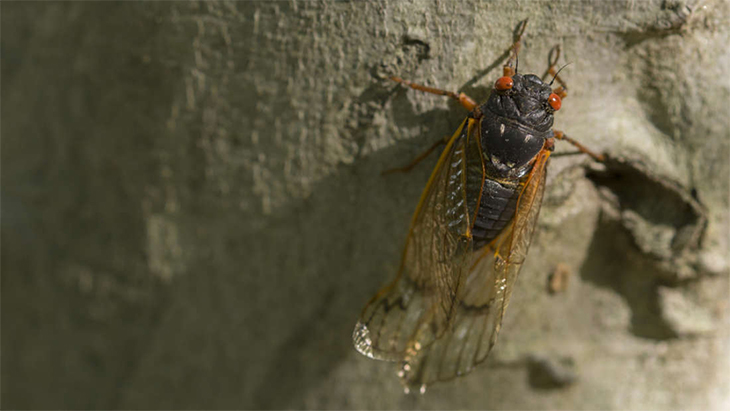By: Robin Andrews/IFL Science Everybody panic – the cicadas are coming, and they’re four years early!
Okay, we’re only joking – there’s no real need to panic here. They’re not particularly threatening to humans, but they can be infuriatingly noisy in large enough numbers. Still, the fact that they have emerged from their underground resting places way ahead of schedule is rather curious.
A recap, for the uninitiated. Cicadas aren’t just one species, but many, and each has its own life cycle. Most birth-to-death timelines are around five years long, but the North American genus, Magicicada, go through 13- and 17-year-long cycles.
Nearly all of these cicadas, once hatched out of their borrowed eggs, stay underground for one of these two periods of time. They exist as tiny nymphs and stay within the soil at around a depth of 2.5 meters (8 feet). Creating a little burrow near vegetation, they feed on plant and tree sap, while also covering themselves quite unceremoniously in an anal fluid.
It’s thought that this life cycle was designed to avoid predators, who often have far shorter life cycles.
After 13 or 17 years, they clamber up to the surface, where they shed their exoskeletons and take to the skies. The last time the 17-year-cycle cicadas – ominously named Brood X – emerged was 2004, so their sudden appearance in 2017 means that they are four years too early – or they’ve suddenly switched to a 13-year cycle, but this is probably not the case.
An important caveat, however – not all of Brood X have erupted out of the ground. They total in the billions upon billions, but so far, only a relative handful have snuck out early, and they’re mostly based in Washington DC.
As reported by the Washington Post, those escaping early are sparse in numbers, and plenty of them are being feasted on by some happily surprised birds.
Funnily enough, they’re moving in on Brood VI’s chrono-territory. These little critters were scheduled to appear in 2017, and they will, when the ground warms up to a specific temperature. It’s not clear how they’ll take Brood X’s attempt to steal their spotlight.
So why are these bemused cicadas waking up early then? Well, at this point, no one knows for sure. Perhaps the ground had been warming unusually quickly over the last few years – after all, Spring is arriving increasingly earlier each year – and it’s confused the timing of their life cycle.
There’s likely other possible reasons for their malfunctioning, but at present, entomologists are slightly baffled. Answers on a postcard, ladies, and gentlemen.




